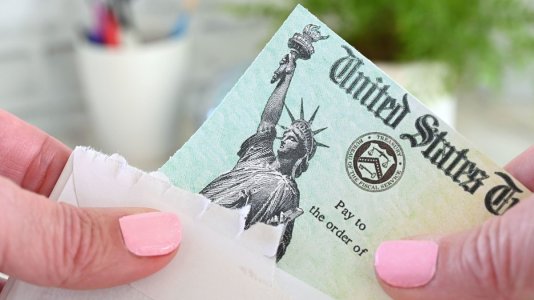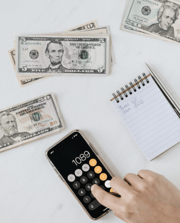Don’t miss out: One move you must make before major Social Security update takes effect
- Replies 0
Big shifts are coming that could impact how you receive what’s rightfully yours.
If you've grown used to a familiar monthly routine, there's a critical deadline approaching that might disrupt everything.
Most folks aren’t aware that a long-standing method for receiving payments is being phased out.
And unless you act fast, you may find yourself waiting longer than expected to get the money you depend on.
This change comes under a recent executive order. The US Department of the Treasury has set a hard deadline: September 30, 2025, is the last day paper checks will be issued.
Officials say the switch is necessary to prevent fraud and reduce costs. Data shows that paper checks are 16 times more likely to be lost or stolen compared to electronic payments.
These checks are also more likely to be returned or tampered with. In all, the Treasury estimates this transition could save around $750 million each year.

Missing the September 30, 2025, deadline won’t cut off your payments immediately.
But the Social Security Administration (SSA) may withhold future payments until you’ve provided your electronic payment information.
That means a delay in your monthly funds until the proper setup is complete.
Also read: Trump's new rule change could drastically affect your Social Security benefits
Source: @backwardshatbarrister / TikTok
Are there any exceptions? Yes—but only for rare cases. If someone truly lacks access to banking or electronic options or is going through extreme hardship, they may qualify for an exception.
These are evaluated case by case and must be approved by the US Treasury. For nearly everyone else, electronic payments will now be the standard.
Beyond convenience, electronic payments offer stronger fraud protection. Every year, thousands of people report lost, stolen, or tampered checks.
Going digital reduces that risk significantly. Your money arrives safely—and much faster. However, the rise in electronic payments also comes with potential scams. Stay alert.
Never provide your Social Security number or banking information to unknown callers or online contacts. The government will never ask for that information unexpectedly.
Also read: Say goodbye to paper checks: How the US Treasury decision could affect your money
Take a few minutes now to secure your payments and avoid delays later. Once you’re set up, you can breathe easier knowing your money will continue arriving reliably and safely.
Read next: Social Security updates payment system: What retirees should know

Have you already made the switch to electronic payments? Was the process easy, or did you face challenges? Got any helpful tips for others who may not be tech-savvy or are unsure how to proceed? Share your thoughts in the comments.
If you've grown used to a familiar monthly routine, there's a critical deadline approaching that might disrupt everything.
Most folks aren’t aware that a long-standing method for receiving payments is being phased out.
And unless you act fast, you may find yourself waiting longer than expected to get the money you depend on.
The old way is ending—and the clock is ticking
After decades of delivery, paper checks for Social Security, Supplemental Security Income (SSI), and Social Security Disability Insurance (SSDI) are officially being phased out.This change comes under a recent executive order. The US Department of the Treasury has set a hard deadline: September 30, 2025, is the last day paper checks will be issued.
Officials say the switch is necessary to prevent fraud and reduce costs. Data shows that paper checks are 16 times more likely to be lost or stolen compared to electronic payments.
These checks are also more likely to be returned or tampered with. In all, the Treasury estimates this transition could save around $750 million each year.

After decades of delivery, paper checks for Social Security, Supplemental Security Income (SSI), and Social Security Disability Insurance (SSDI) are officially being phased out. Image Source: @ABC7NY / X
Who does this affect—and what happens if you wait
Anyone still receiving Social Security, SSI, or SSDI benefits via paper check must make the change.Missing the September 30, 2025, deadline won’t cut off your payments immediately.
But the Social Security Administration (SSA) may withhold future payments until you’ve provided your electronic payment information.
That means a delay in your monthly funds until the proper setup is complete.
3 ways to receive your benefits securely
1. Direct Deposit to a Bank or Credit Union
- This is the fastest and most secure option. Your benefits go directly into your account—no paper, no waiting, no risk.
2. Direct Express Prepaid Debit Card
- For those without a bank account, the Direct Express card is a reliable option. There’s no credit check, and your funds are automatically loaded onto the card each month. Use it for everyday purchases or ATM withdrawals.
3. Government-Approved Prepaid or Digital Accounts
- Other approved prepaid cards or fintech tools, like Purple, are eligible. Just make sure they meet federal guidelines.
Also read: Trump's new rule change could drastically affect your Social Security benefits
How to make the switch before the deadline
- Online: Visit GoDirect.gov to register for direct deposit or the Direct Express card.
- By Phone: Call the Treasury Electronic Payment Solution Contact Center at 1-877-874-6347 for guidance.
- Through the SSA Website: Go to ssa.gov, log in, and select “Direct Deposit.” Or call the SSA directly at 1-800-772-1213.
- In Person: Visit your local Social Security office with a voided check or a letter from your bank.
- By Mail: Prefer pen and paper? Download and complete the form from the Go Direct site and send it by mail.
Source: @backwardshatbarrister / TikTok
Are there any exceptions? Yes—but only for rare cases. If someone truly lacks access to banking or electronic options or is going through extreme hardship, they may qualify for an exception.
These are evaluated case by case and must be approved by the US Treasury. For nearly everyone else, electronic payments will now be the standard.
Beyond convenience, electronic payments offer stronger fraud protection. Every year, thousands of people report lost, stolen, or tampered checks.
Going digital reduces that risk significantly. Your money arrives safely—and much faster. However, the rise in electronic payments also comes with potential scams. Stay alert.
Never provide your Social Security number or banking information to unknown callers or online contacts. The government will never ask for that information unexpectedly.
Also read: Say goodbye to paper checks: How the US Treasury decision could affect your money
Think beyond the check—how to supplement your benefits
Now is also a good time to think about your financial future. Social Security is vital, but often not enough.- 401(k) Plans
- If you're still working, maximize your 401(k)—especially if your employer matches your contributions.
- This account grows tax-deferred, making it one of the most powerful tools for building retirement security.
- Individual Retirement Accounts (IRAs)
- An IRA offers even more flexibility. Traditional IRAs offer tax-deductible contributions and grow tax-free until withdrawn.
- Unlike a 401(k), IRAs aren’t tied to your employer, so you have more control over your investments.
- Other Savings Options
- Consult a financial advisor about expanding your savings with diversified investments or savings accounts tailored to retirees.
Take a few minutes now to secure your payments and avoid delays later. Once you’re set up, you can breathe easier knowing your money will continue arriving reliably and safely.
Read next: Social Security updates payment system: What retirees should know
Key Takeaways
- Americans must switch from paper checks to electronic payments for Social Security, SSI, and SSDI by September 30.
- Paper checks are 16 times more likely to be lost or stolen, and ending them is expected to save the government about $750 million annually.
- Payment setup options include direct deposit to a bank account, Direct Express® debit card, or a government-approved prepaid/fintech account.
- Missing the deadline won’t immediately halt payments, but future payments may be withheld until electronic payment details are submitted.






